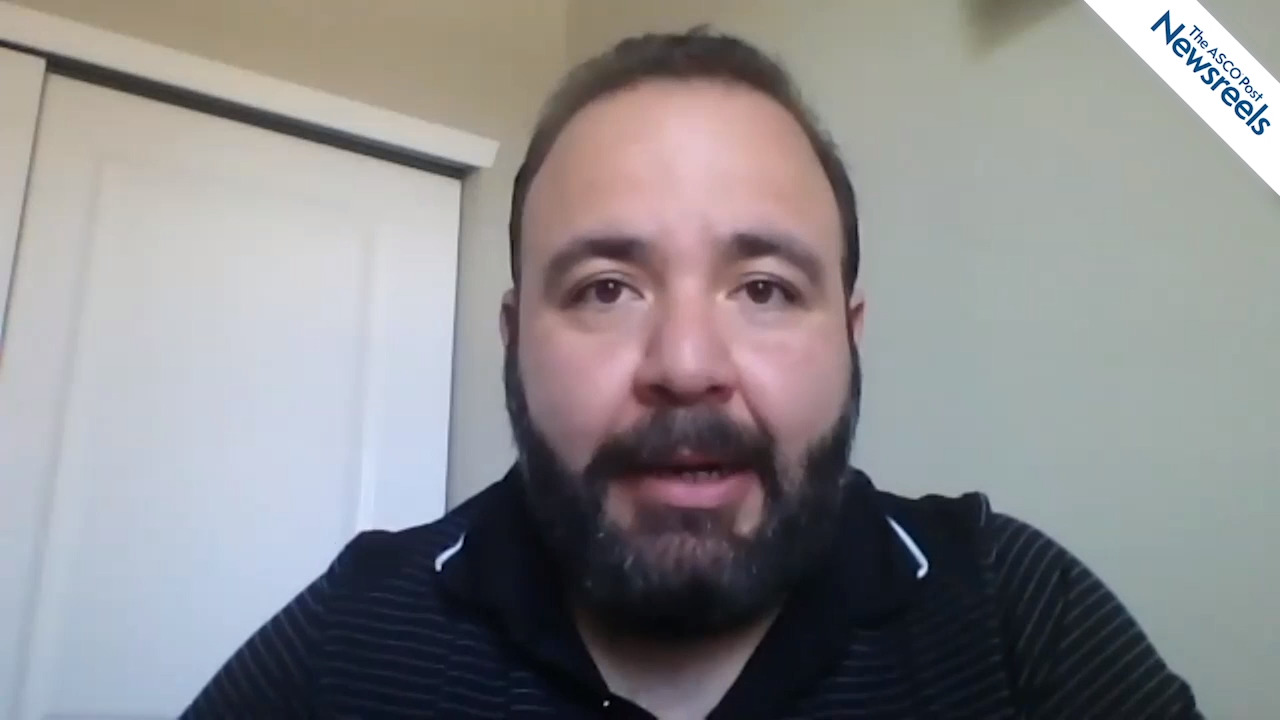Elizabeth H. Stover, MD, PhD, on Ovarian Cancer: Nivolumab Plus Bevacizumab for Relapsed Disease
AACR Virtual Annual Meeting 2020 II
Elizabeth H. Stover, MD, PhD, of Dana-Farber Cancer Institute, discusses an analysis of genomic alterations in patients with relapsed ovarian cancer who were treated with nivolumab plus bevacizumab in a phase II clinical trial. The study was conducted to identify potential biomarkers of response (Abstract 1048).
The ASCO Post Staff
Stacey A. Fedewa, PhD, of the American Cancer Society, discusses the increasing incidence rates of colorectal, breast, kidney, thyroid, uterine corpus, and cervical disease in younger patients. Data show that colorectal cancer is increasing most rapidly, while breast cancer—the most common cancer among young women—is rising at a slower pace (Session ED35).
The ASCO Post Staff
Robert A. Winn, MD, of Virginia Commonwealth University and the Massey Cancer Center, discusses the COVID-19 pandemic and how it is exacerbating disparities in cancer care among racial and ethnic minorities and the medically underserved who are disproportionately affected by the coronavirus (Session VSS06).
The ASCO Post Staff
Alfonso Bencomo Álvarez, PhD, of Texas Tech University Health Sciences Center, discusses his retrospective study of the incidence and survival for patients with hematologic malignancies residing at the United States/Mexico border. The analysis showed that 10-year survival rates for Hispanic patients with ALL, AML, and CML were significantly lower for those who lived in El Paso than for those who lived elsewhere in Texas (Abstract 4343).
The ASCO Post Staff
Ramaswamy Govindan, MD, of Washington University School of Medicine, discusses sex differences in lung cancer, including variations in treatment response, and the state of research in the field (Session ED20).
The ASCO Post Staff
Kala Visvanathan, MD, of Johns Hopkins Bloomberg School of Public Health, discusses her analysis of data from more than 10,000 women with ovarian cancer. The results suggest that atorvastatin and simvastatin, lipophilic statin cholesterol-lowering drugs, reduced ovarian cancer death rates (Abstract 5782).





